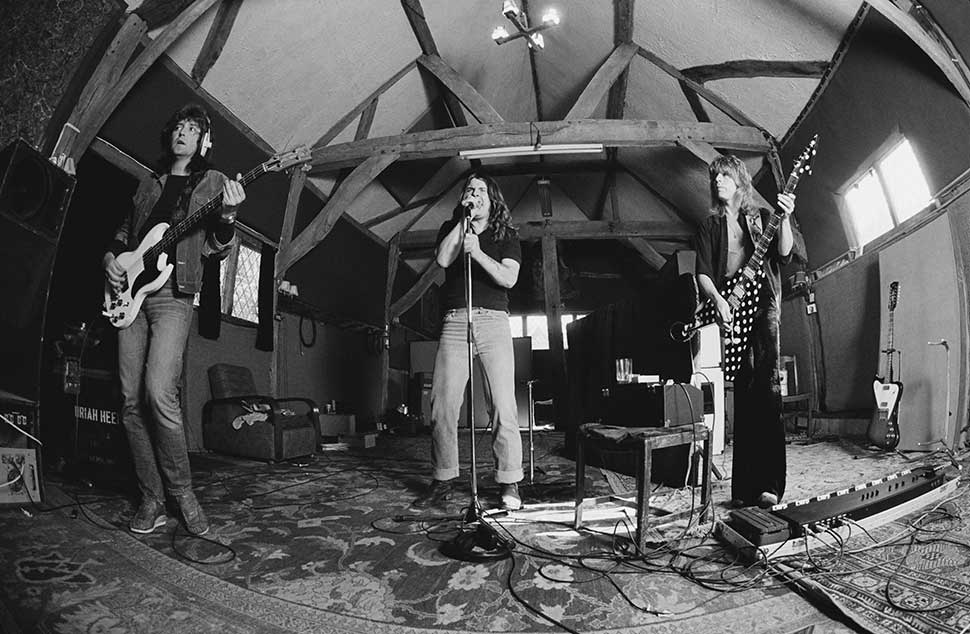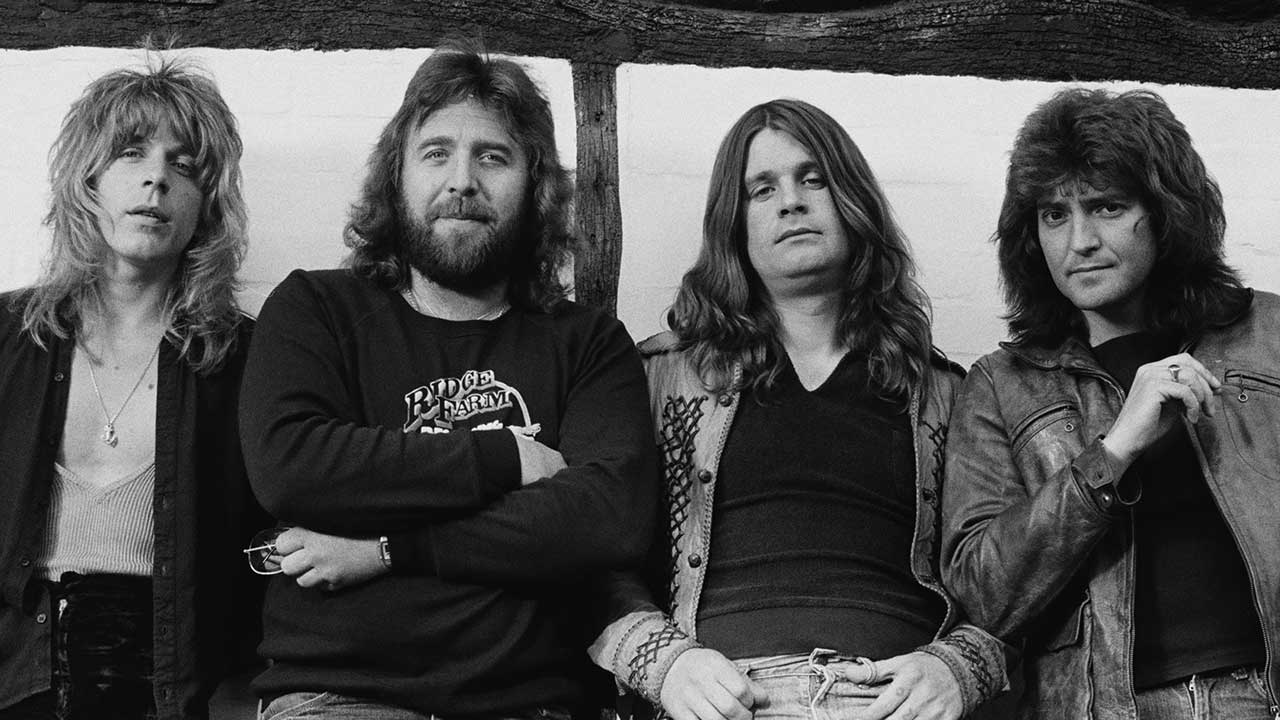It’s 1979 and Ozzy Osbourne has fallen on hard times. Bullied out of Black Sabbath and holed up at Le Parc hotel in West Hollywood, he lurks amid the debris of excess: a hopeless, friendless, caged animal, seemingly resigned to his fate as rock’s ultimate cautionary tale.
“I really did think: ‘This is the fucking end for me,’” he admits to Classic Rock, decades later. “I’d been booted out. I just got fucked up every day for three fucking months. Never went outside. Never even opened the drapes.”
Into this scene of squalor and self-pity, enter Sharon Arden, with an industrial-strength dose of tough love. Though only in her late 20s and with a puppy-like devotion to the married Osbourne, she was nonetheless a shit-kicking rock’n’roll authoritarian schooled at the knee of the formidable Don Arden (her dad), and the only person capable of mobilising the wallowing singer.
“One morning, Sharon just came round and told me: ‘Get your shit together. I’ll manage you’. Ozzy recalls, with obvious admiration. “Once she was in the picture, things got rolling, y’know? Sharon absolutely deserves credit for getting that album out of me.”

Auditions for musicians to work with Ozzy on his first album outside of Sabbath began with a notice on the board of Mates rehearsal space in LA. Months passed, until the arrival of Californian guitarist Randy Rhoads gave Ozzy his epiphany – “like God entering my life” was how he described it – and the pair left the US for initial writing sessions at Ozzy’s family home in Stafford, West Midlands.
“Randy was one of these guys who, when we had a weekend off, he’d get in the truck with one of the roadies and just go off around England having guitar lessons,” the singer recalls of their odd-couple dynamic. “He probably saw more of England than I ever have.”
Finding the rest of the line-up would prove more problematic. In her 2005 autobiography, Extreme, Sharon depicts the rhythm section – former Uriah Heep drummer Lee Kerslake and ex-Rainbow bassist Bob Daisley – as talented but unlikeable, and their recruitment as a last resort when other players, including Cozy Powell, priced themselves out of contention.
“The instant I saw the band together,” she wrote, “I could see the dynamics didn’t work, but we were too far down the line.”

Rhoads and Ozzy, though, were a natural fit.
“In Sabbath, they’d just write something and say: ‘Put a vocal on that‘,” Ozzy recalls. “I could get the range in the studio, but with a song like Black Bloody Sabbath, I could never get it on stage. Randy was the first guy in my whole career to make it comfortable for me. When I had the melody in my head for Goodbye To Romance_ – the ballady, Beatley caged animal, seemingly resigned to his one – I sang it to him, and he says: ‘Let’s do it in this key’. He was very good at helping me out.
“The thing that I loved about Randy,” he adds, “was that everybody was doing that fucking finger-tapping shit, but what he’d do was go from that to a bluesy vibe. He was like Eddie Van Halen and then some. He was a phenomenal find.”
Despite Ozzy’s residual ‘satanic’ caricature from the Sabbath years, there was light and shade in the Blizzard Of Ozz material recorded at Ridge Farm Studios in March and April 1980.
“I like to go in the studio and make an album,” he says. “For me, if it’s just fucking headbanging from start to finish, that’s not an album, it’s just a fucking racket. I’m from the old school. In Black Sabbath we’d do jazz and all kinds of styles, it wasn’t just fucking Iron Man every song. Anything that makes the album better. So when Randy says to me: ‘Do you mind if I put this classical instrumental piece [Dee] on?’, I said: ’What are you fucking asking me for? It’s your album as well’. Just go for it, y’know?”
Lyrically, too, the subject matter was eclectic, with Ozzy (or Daisley, depending on who you believe) taking in occult hero Aleister Crowley, pay-per-view hotel porn (“Randy used to call them ‘bone movies’”), and the controversial Suicide Solution, later to spark a lawsuit from the parents of a Californian teenager who shot himself while listening to it.
“But if you’d listened to the lyric, it’s not about suicide as a ‘solution’,” Ozzy counters. “It’s about liquid. It was about Bon Scott, to be honest with you – about drinking yourself to death. I remember being in the dressing room with Bon, and he had this fucking great big tumbler of what turned out to be Jack – fucking half a pint! A couple of weeks later my sister phoned me and says: ‘You know a guy called Bon Scott? He drank himself to death’. But that song turned into a mess, all the fucking backbiting. It was crazy.”
Perhaps it was a little rich of Ozzy to judge anyone else’s drinking habits. Although Sharon had made him functional, it’s a mistake to cast Blizzard… as the ‘sober album’.
“Any band situation I’ve been in,” Ozzy reflects, “the first album is always the most fun, because you’ve got everything to gain and nothing to lose. Recording Blizzard Of Ozz, there was a wonderful atmosphere: Sharon would come down, we’d all go down the pub, get pissed, come back, have some fun… loads of booze and drugs. It’s when fucking business starts to get involved that it starts to get shitty. I don’t understand the business side of it, still. My wife is the manager.”
But even to an industry novice, it was clear that business was good. Released in September 1980, Blizzard Of Ozz swaggered into the UK album chart at No.7 and went platinum during a two-year run in the US chart. Sweeter still, no doubt, was the schadenfreude of watching the Ronnie James Dio-fronted Sabbath flounder after the strong start of that year’s Heaven And Hell album.
Just a year after facing the knacker’s yard, Ozzy Osbourne was back at the head of the metal pack. For some, though, Blizzard Of Ozz left a nasty taste in the mouth. In 1981, Kerslake and Daisley were pushed out. They would later sue Jet Records and Don Arden for ‘non-payment of performance royalties from sales’ of the chart-straddling album. Lawsuits pinged back and forth.
And then in 2002 came the reissue of the record, on which their drum and bass parts had been erased altogether, and replaced respectively by Mike Bordin and Robert Trujillo.
“Bob Daisley and Lee Kerslake have harassed Ozzy and our family for several years,” said Sharon. “Because of their abusive and unjust behaviour, Ozzy wanted to remove them from these recordings.”
Curiously, the 30th-anniversary reissue of Blizzard… reinstated the original mix. And Ozzy tells Classic Rock that it’s something he welcomes.
“That was the way it was done, you know?” he considers. “It’s this law shit. [The re-recording] was done because of these fucking never-ending lawsuits that keep fucking popping up every fucking three years. If it starts again we’ll have to change it again, because when somebody puts a lawsuit in, whether it’s a ridiculous one or not, I still have to get a lawyer to defend me, y’know? I’m glad it’s back the way it was. We didn’t want to change it in the first place, but it was the only way we could stop the lawsuits, y’know?”
Ultimately, to the man in the pit, the legal small print and ethical chin-stroking make little difference to the thrill of what is still a pivotal moment in hard rock. Blizzard Of Ozz is a victory snatched from the jaws of defeat. And it sounds like it, with Ozzy performing with a backs-to-the- wall fire that he’s never quite matched since becoming financially secure.
“People often say to me: ‘What’s your favourite album?’,” he muses. “Well, I can’t say that any one is my favourite, because it makes everything else get overlooked, so most of the time I say: ‘I haven’t made it yet’. But I think Blizzard Of Ozz is a fine piece of work. It’s one of my proudest moments and it speaks for itself.”
This feature was originally published in Classic Rock issue 150, in 2010.

